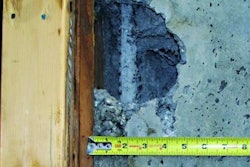A new report published by the Competitive Enterprise Institute, a nonprofit, nonpartisan public interest group that studies the intersection of regulation, risk and markets, highlights one critical tool in the battle to control the growing cost of government: competition.
In Fixing America's Crumbling Underground Water Infrastructure: Competitive Bidding Offers a Way Out, author Bonner Cohen, Ph,D., Senior Fellow at the National Center for Public Policy Research, details how increased competition would help reduce the costs associated with upgrading the nation's deteriorating water supply and wastewater infrastructure.
Water main breaks and leaking water supply pipes cost American taxpayers billions of dollars every year in lost water and repair costs. Necessary upgrades promise to place additional stresses on taxpayers long into the future. "Building and replacing water and sewage lines alone will cost some $660 billion to $1.1 trillion," over the next 20 years, notes Cohen.
The task at hand, he says, is to find the "most efficient and cost-effective" solutions. "Inserting some market discipline into the process would go a long way toward achieving that goal," Cohen continues.
Yet, current government contracting policies prevent many local governments from employing some of the most affordable and effective technologies available. For example, many do not allow use of PVC pipe, favoring older pipe technologies, even though PVC is affordable, inert, and does not corrode like metal materials. Some localities follow such rules simply because of what Cohen calls "bureaucratic inertia": failure to update procurement policies to address the development of new technologies.
"Given the degree of deterioration plaguing our underground water networks, and the severe financial constraints facing local governments, continuing outdated procurement practices is a prescription for disaster," Cohen points out.

















